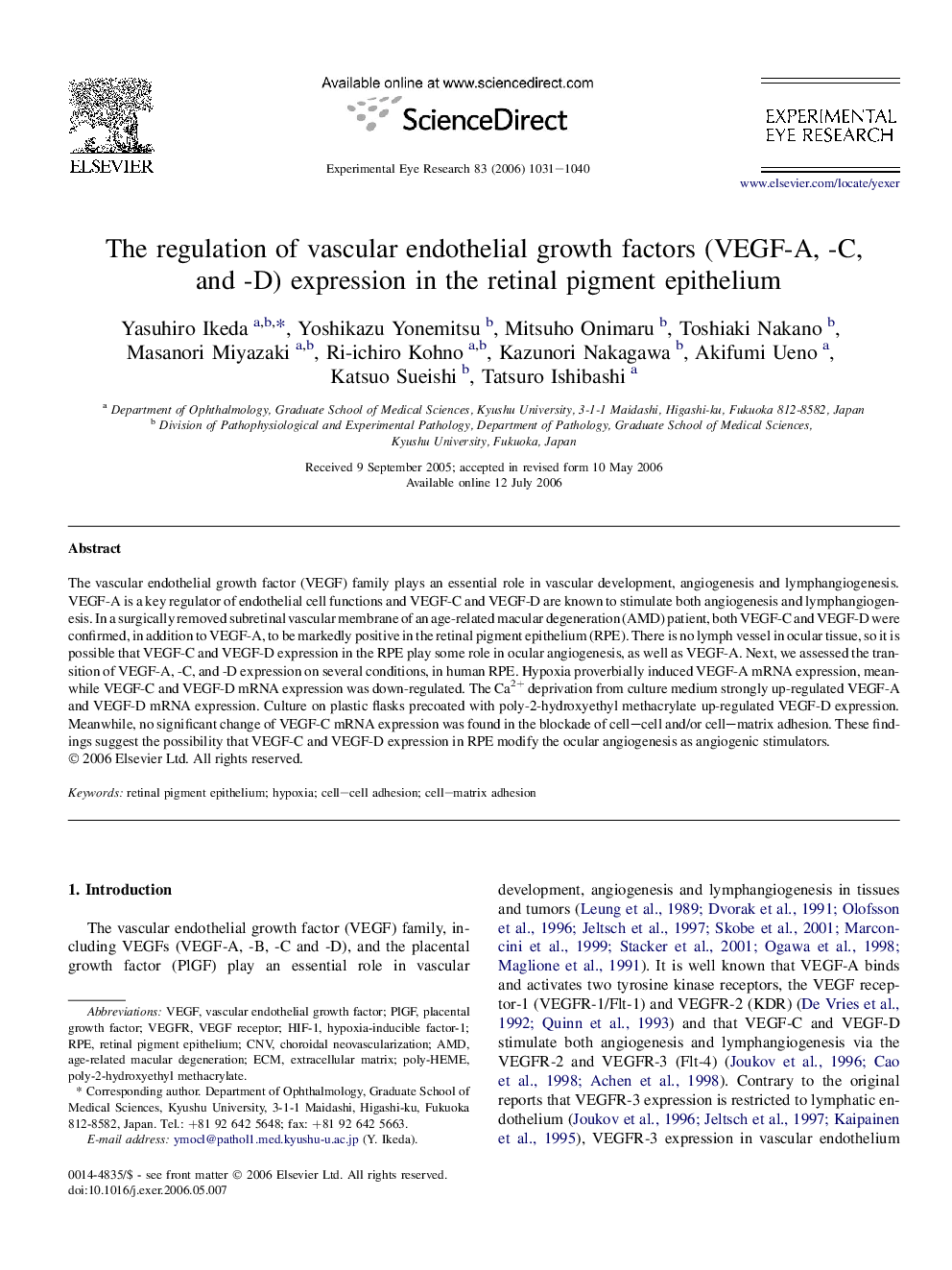| Article ID | Journal | Published Year | Pages | File Type |
|---|---|---|---|---|
| 4012960 | Experimental Eye Research | 2006 | 10 Pages |
The vascular endothelial growth factor (VEGF) family plays an essential role in vascular development, angiogenesis and lymphangiogenesis. VEGF-A is a key regulator of endothelial cell functions and VEGF-C and VEGF-D are known to stimulate both angiogenesis and lymphangiogenesis. In a surgically removed subretinal vascular membrane of an age-related macular degeneration (AMD) patient, both VEGF-C and VEGF-D were confirmed, in addition to VEGF-A, to be markedly positive in the retinal pigment epithelium (RPE). There is no lymph vessel in ocular tissue, so it is possible that VEGF-C and VEGF-D expression in the RPE play some role in ocular angiogenesis, as well as VEGF-A. Next, we assessed the transition of VEGF-A, -C, and -D expression on several conditions, in human RPE. Hypoxia proverbially induced VEGF-A mRNA expression, meanwhile VEGF-C and VEGF-D mRNA expression was down-regulated. The Ca2+ deprivation from culture medium strongly up-regulated VEGF-A and VEGF-D mRNA expression. Culture on plastic flasks precoated with poly-2-hydroxyethyl methacrylate up-regulated VEGF-D expression. Meanwhile, no significant change of VEGF-C mRNA expression was found in the blockade of cell–cell and/or cell–matrix adhesion. These findings suggest the possibility that VEGF-C and VEGF-D expression in RPE modify the ocular angiogenesis as angiogenic stimulators.
